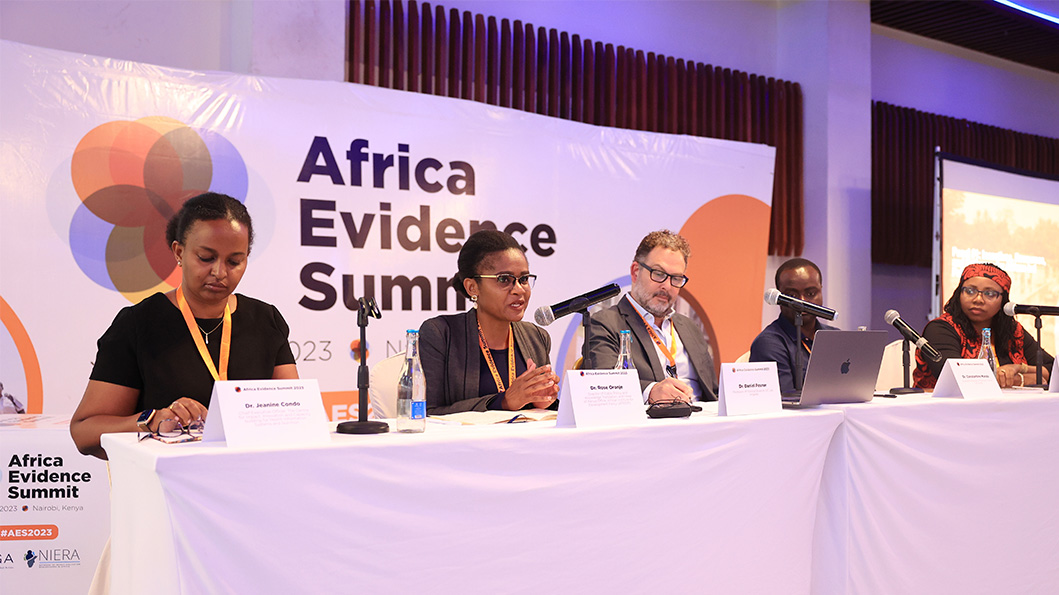Blogs

Achieving the sustainable development goals and African Union’s Agenda 2063 continue to drive the African government’s development policy directions and attract debates and analysis from an array of stakeholders, including the private sector and members of the civil society.
Agenda 2063 envisages an Africa where poverty is eradicated in one generation and manufacturing, value addition and science and technological innovation drive socioeconomic transformation for shared prosperity, aligning with SDG 1, which calls for ending poverty in all its forms by 2030. However, the 2022 Institute of Security Studies report reveals that poverty is increasing in almost all African countries.
But with universities spread across the breadth and length of this content, endowed with some of the world’s best brains, it is unfortunate that Africa continues to experience rising disease burden, poor macroeconomic performance, modest education and skills development and now layered with increasing climate change. Academic institutions are a valuable reservoir of innovation and knowledge as they research complex issues. It is time they rise to the challenge, be proactive in policymaking and implementation, and promote evidence-informed decision-making culture to transform lives in Africa.
Evidence produced in academia does not reach the tables of policymakers, who are often under pressure to make development decisions quickly. But bridging the gaps between research, policy, and practice is critical. It can help policymakers access the latest research and insights for better decisions to alleviate socioeconomic ills bedevilling the continent.
It is important for academic institutions and researchers to understand decision-makers’ evidence needs and package their research in a way policymakers understand, thus helpful in informing their decisions. Local Academics should no Longer seat on the fence and point fingers at government failures but be actively involved in public policy discourses so they serve as strategic agents of the transformation we all want to see in Africa’s development.
When the public sees that policymakers base their decisions and illustrate what difference they are making using sound evidence, they are more likely to trust the government. This is especially important in today’s polarized political environment, where trust in government is at an all-time low (Africa Integrity Indicators report).
At a recent 11th Annual Africa Evidence Summit held in Nairobi, Kenya, June 19 – 20, 2023, that brought together over 500 scholars from across East and West Africa, and US-based faculty, policymakers and practitioners participants decried the low-lying place academia has taken on matters of influencing national policy decisions.
The Center for Effective Global Action hosted the event in. partnership with AFIDEP, Network for Impact Evaluation Researchers in Africa (NIERA), African Economic Research Consortium (AERC), Afro barometer, Busara, the Global Poverty Research Lab (GPRL), United States Agency for International Development (USAID), and the William and Flora Hewlett Foundation.
“Unfortunately, Great Science is NOT Shaping Policymaking, and evidence shows that the overwhelming majority of academics are NOT shaping today’s public debates,” participants noted. To claim the 21st Century as the turning point for Africa, it needs to nurture a critical mass of African Institutions and experts ready and able to define, own, and drive the continent’s development agenda.
They must do this by consistently using evidence in public policy formulation and implementation to ensure countries set the right priorities, implement cost-effective interventions, allocate scarce resources effectively, and teach a culture of continuous learning to optimize the performance of programmes.”
We should encourage conversation on pro-poor growth as the solution for poverty, unemployment and inequality. Many African governments are not allocating enough resources to development issues, and policymakers must engage them to help improve lives.
Academia needs to move away from the notion of evidence dissemination and focus more on research uptake and proactively participate in policymaking. If Governments place evidence generation on their agenda, fund it and use it to inform decision-making, they will be able to set the right development priorities, design cost-effective interventions, and enhance program implementation. Investing in improving research systems, including access to reliable data, digital resources, and academic databases, can empower African researchers with the necessary tools to conduct high-quality research and produce impactful publications.
In generating their research, local scholars are best placed and most motivated to identify and address development challenges in their countries to improve lives. Their participation significantly reinforces this credibility and impact for evidence for decision-makers. Data collection is essential for policymaking in validating claims. Governments need data to know if the programs they are implementing are responding to what the people need and are effective.

